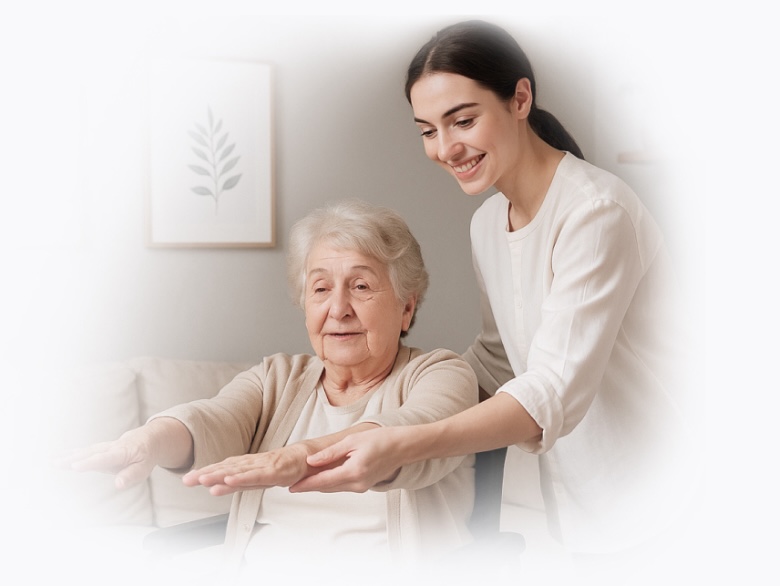15 April 2025
Debunking Common Myths About Hospice Care
Hospice care is one of the most compassionate and holistic services available to individuals and families facing the final stages of life. Yet despite its proven benefits, hospice is often misunderstood. Misconceptions about what hospice care is—and what it isn’t—can cause hesitation or delay when it comes to choosing this valuable support. These myths can prevent patients from receiving the comfort, dignity, and peace they deserve in their final months. At Unified Care Hospice, we believe that knowledge is one of the greatest forms of empowerment. By clearing up these common myths, we hope to help families make more confident, compassionate decisions.
One of the most persistent myths is the belief that choosing hospice means giving up. Many people assume that accepting hospice is a sign that the patient or their family has stopped fighting or lost hope. In reality, hospice is not about giving up—it’s about shifting the focus from curing an illness to improving the quality of life during its final phase. It is a choice made out of strength and love, prioritizing comfort, connection, and peace. Rather than surrender, it is a deeply intentional and thoughtful decision to ensure that every day counts.
Another common misconception is that hospice is only for the last few days or hours of life. While some individuals do enter hospice very late in their illness, this is often due to delayed referrals or misunderstandings about eligibility. Hospice is available to those with a terminal diagnosis and a life expectancy of six months or less, as determined by a physician. When chosen early, hospice can provide months of meaningful care and support—not just for the patient, but for their entire family. Early hospice care allows more time to manage pain effectively, address emotional and spiritual needs, and prepare for what lies ahead without unnecessary suffering.
Many people also mistakenly believe that hospice care can only be provided in a facility. In truth, most hospice care takes place wherever the patient calls home—whether that’s a private residence, assisted living facility, or nursing home. Hospice care is designed to bring support and services directly to the patient’s bedside, creating an environment that is familiar, peaceful, and centered around the individual’s preferences.
Another myth that often surfaces is the idea that hospice care speeds up the dying process. This could not be further from the truth. Hospice neither hastens death nor prolongs life. Its role is to support the natural process, managing symptoms and pain in a way that enhances comfort and dignity. By addressing physical discomfort and emotional distress, hospice care often allows individuals to live more fully in the time they have left. In fact, some studies have even shown that patients who receive hospice care may live longer than those who pursue aggressive treatments in the final stages of illness.
There is also a misunderstanding that hospice is only for cancer patients. While hospice has long been associated with cancer, it is available to anyone with a terminal diagnosis. This includes individuals living with heart disease, chronic lung conditions, advanced dementia, kidney failure, and other life-limiting illnesses. The goal of hospice is not based on the diagnosis itself, but on the needs of the patient and their eligibility for comfort-focused care.
Families often worry that once a patient begins hospice, they cannot change their mind. However, hospice is a choice—not a one-way street. Patients can leave hospice at any time if their condition improves or if they decide to pursue curative treatments again. Re-enrollment is possible if and when their condition once again meets the criteria. This flexibility ensures that care remains responsive and patient-centered, rather than rigid or final.
Lastly, some people fear that hospice will mean less care or attention. In truth, hospice care often provides more frequent contact and deeper support than many other forms of care. With a dedicated interdisciplinary team—including nurses, social workers, chaplains, aides, and volunteers—patients and families are surrounded by professionals committed to their physical, emotional, and spiritual well-being. Hospice teams are available around the clock to respond to crises, answer questions, and offer guidance, ensuring no one ever feels alone in the journey.
Hospice is not about losing hope—it’s about redefining hope. It’s about finding moments of meaning, laughter, reflection, and peace in the time that remains. It’s about ensuring that no one suffers unnecessarily and that families have the support they need every step of the way.
At Unified Care Hospice, we are dedicated to educating our community and dismantling the myths that keep people from experiencing the full benefits of hospice. If you or a loved one is navigating a serious illness and wondering whether hospice might be the right choice, we’re here to offer clarity, compassion, and care—because you deserve to understand all your options, and to feel supported no matter what path you take.



